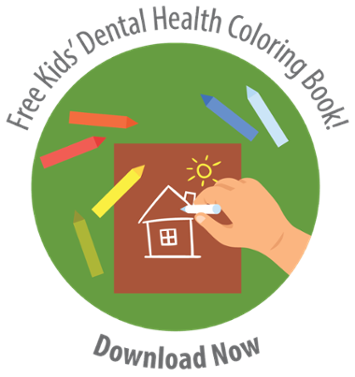By Erica Laceria on Jan 30, 2020 @ 01:00 PM
According to the American Dental Association, February is Children's Dental Health Month. The CDC reports that 15% of children ages 2 to 17 did not visit the dentist at all in 2017. Almost a fifth of children between the ages of 5 and 19 have an untreated dental issue. Children who visit a dentist once a year are less likely to need fillings or extractions. If you have not recently taken your child to the dentist, consider celebrating Children's Dental Health Month with a dental visit. We’ve compiled some of the benefits you’ll reap from bringing your child to the dentist, as well as some important facts you should be aware of!
A Thorough Cleaning
Your child will receive a thorough check-up and cleaning at the appointment. Plaque build-up that cannot be removed at home will be cleaned off their teeth. Stuck food debris will also be removed. This will prevent bacteria growth that would cause a future issue for your child.
Tips for You and Your Child
The dentist will provide you tips for how to best take care of your child's teeth. They can let you know where plaque has built up so you can work with your child to do a better job brushing those areas. The dentist will also provide your child with advice on how to do a good job taking care of their own teeth. Learning good habits at a young age is likely to result in a healthier mouth throughout their lives.
Don't Minimize the Importance of Baby Teeth
Often parents believe that the baby teeth do not need to be well cared for because they are going to fall out anyway. Therefore they do not regularly bring their child to the dentist until the adult teeth come in at age 12. Baby teeth are important however. They:
- Allow children to chew so they can eat nutritious meals.
- Are important part of speech development. Baby teeth that have to be removed prematurely due to decay can impact speech development.
- Save space for the permanent teeth that haven't come in yet.
In addition, not all baby teeth fall out at the same time. This means that at age 5 your child may have their first permanent teeth. The dentist can help keep the baby and permanent teeth healthy with fluoride treatments and sealants preventing future dental issues.
Your Child Will Build a Long-Term Habit
If your child is in the habit of going to the dentist regularly they will be more likely to continue this habit as an adult. This will help prevent pain and other medical issues that could occur long-term. Any oral issues that do occur will be caught early and can be resolved with minimal discomfort to your child. An issue that has been lingering undetected for a long period of time is more likely to be significant, resulting in extensive dental work.
With proper dental care and regular dental visits tooth decay can be prevented. If you are the parent of a child between the ages of 2 and 17, consider making it a priority to take them to the dentist this year. In addition, children that visit the dentist on a regular basis tend to be less anxious about going to the dentist. To help lessen that anxiety, download our free kids dental health coloring book to take with you while you and your child sit in the waiting room.





comments